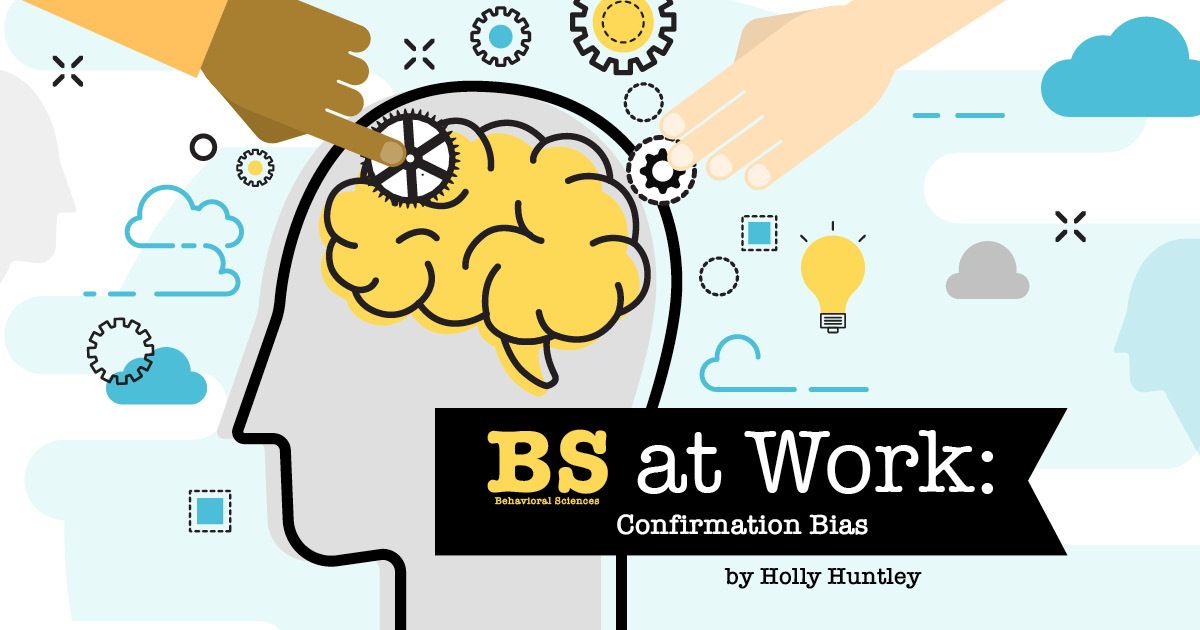Seeing is believing. But what if what you are seeing (and hearing) and believing is not reality?
Let’s all take a moment and reflect on our own confirmation bias—“a bias that results from the tendency to process and analyze information in such a way that it supports one’s preexisting ideas and convictions.”
Confirmation bias impacts how we gather, interpret, and recall information—and it’s extremely common. We all feel validated when we see content shared that supports our own beliefs. This validation triggers a powerful emotion in us—frankly, it just feels good to be right.
Examples of confirmation bias in action include:
- Not seeking out objective facts

- Interpreting information to support an existing belief
- Only remembering details that uphold your belief
- Ignoring information that challenges your belief
Why is confirmation bias a concern? Because it prevents us from looking at situations objectively. It can lead to a whole host of cognitive distortions, such as polarized thinking, where everything is black or white (when in reality most things in life are gray and complex). And in times of uncertainty (like a global pandemic), we want answers, which make us more prone to polarized thinking. Having an explanation—even if it’s not true—for life-changing events that seem to come out of nowhere comforts the human psyche.
I have found exercises used to address polarized thinking are very helpful for management teams. I lead exercises to get people unstuck, see both sides of an issue, and meet somewhere in the middle. (Before COVID-19, we would go around the room to experience opposing views and by the end of the session literally meet in the middle of the room.)
If I could facilitate a global workshop for the world, I would. Many days I fantasize about hosting a big intervention to achieve some common ground for the good of society. I truly believe most of us have the best of intentions, but polarized thinking is like a pandemic and can be highly contagious. Let’s face it: social media and confirmation bias are a bad combination for society.
So here is my homework assignment for each of us, to overcome confirmation bias:
- Whichever news channel you find most validating, stop watching it and switch to one that you are less likely to agree with. What does it feel like? Likely it’s uncomfortable—but it’s important not to rely on a limited number of news sources.
- Don’t unfriend someone you disagree with. Try to understand their perspective. What influences their views? This can also be very uncomfortable, but consider what you could learn if you walk in their shoes.
Check yourself. If you think you are open-minded, chances are you are not—at least, not 100%. Want to know more about how to recognize and remediate cognitive bias? Contact us.

